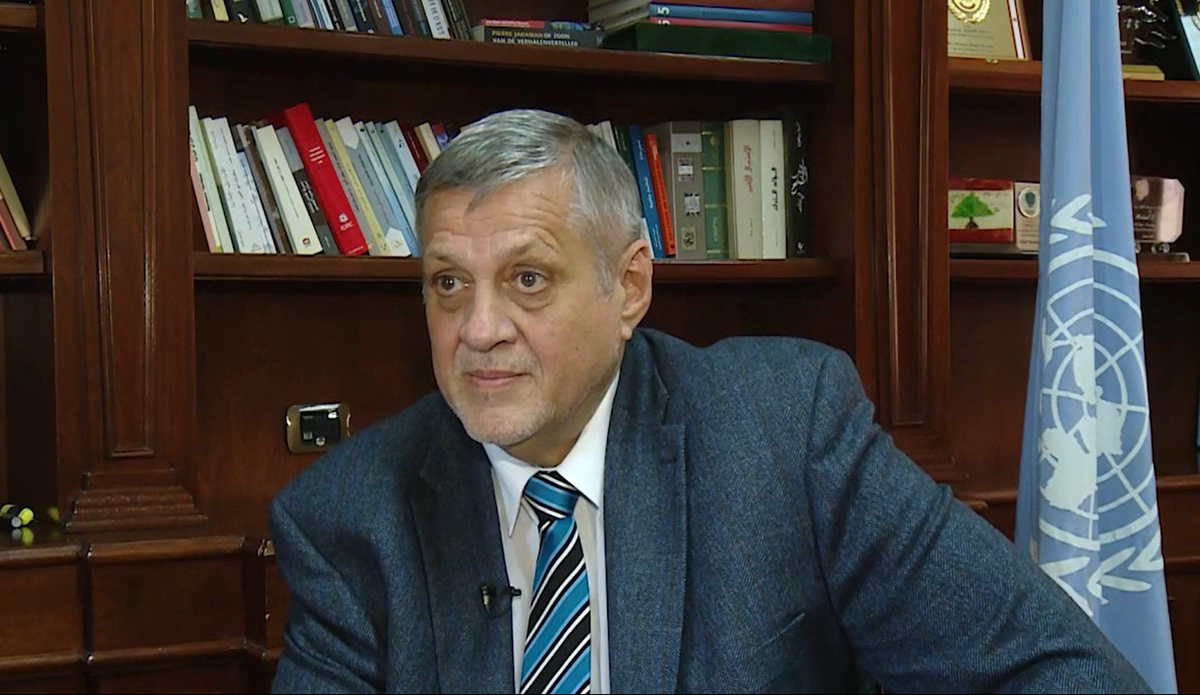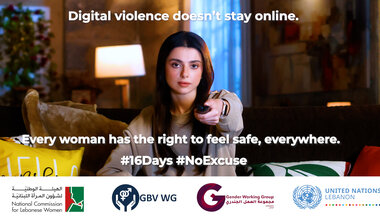Interview of UN Special Coordinator for Lebanon Jan Kubis with Al-Jazeera
Interview of UN Special Coordinator for Lebanon Jan Kubis with Al-Jazeera
Q: Do Lebanese authorities seem to understand that this time around there will be no blank checks?
A: Well, I hope that they do. These are the messages that are coming from the international community and this is the message that I believe we all need to deliver time after time to partners in Lebanon. First, they need to work, they need to not only design reforms because they did it many times before but implement them. Some need to be implemented immediately as per the government’s program or the needs of the country and the requests of the protesting people. Some of them might come as a result of negotiations with the IMF, but they need to move and implement reforms. There is no blank check, there is no savior on a white horse coming to Lebanon.
Q: Do you think practical steps have been taken so far? Any indication? Any tangible steps?
A: I would say yes, there are promises. I would say, let’s have a look again. I know there is a lot of criticism of the government, that they are not moving quickly enough, but if we compare the results of their work with, well, my previous experiences, not only here but in many other countries, but I see determination, I see sincere effort. One can have a lot of comments about the economic rescue plan that was produced, but it is a solid piece of work and a good starting ticket for negotiations with the IMF. At the same time, of course, there are many areas where they promised, and they have still not delivered the electricity sector reform for example. The people of Lebanon are nervous about why it is moving so slowly.
Q: Do you think that the fact that this plan does not enjoy broad political consensus in the country will, in any way, have an impact on how the international community deals with it?
A: You know, it’s a matter of negotiations at this point of time. From my perspective, what is important is that it’s on the table, but it’s obvious that there are many other ideas, many other plans that are produced by different political forces, that are produced by different expert associations, bankers, civil society, etc. … I assume that these plans will also inform the negotiations, they are not a part of the government’s plan, but I believe they are full of ideas and that it would be good for both parties – the government and the IMF – to take them into account when they will negotiate.
Q: Do you think they are engaging the people enough? Do you think that these politicians are legitimate enough to carry out reforms? Are they engaging with the people? Because these are stakeholders too.
A: There is never enough engagement with the people, and this was behind the message of the international community. It’s not only about direct engagement, but it’s also taking account of a lot of ideas. You don’t need necessarily to sit with the people. They produce different ideas, and you know, the October protests produced a lot of ideas, a lot of requests. People are fed up with the dysfunctional political-economic way of doing business here in the country and the leaders of this country, be it the government or all political leaders, they must hear what the people are saying and then translate it into concrete action.
Q: Do you think they’re listening?
A: Not always, and I am afraid that they need a sort of constant boost and messaging, including from the people.
Q: As brief as possible, do they realize that – can you just tell me what are the reforms that the international community is looking at right now? What do they need to do?
A: It’s the electricity sector reform – that’s what I believe is perhaps the point in case. It’s both what the people have been requesting for ages and where the governments failed, and it’s definitely also what the international community would like to see as a tangible manifestation of resolve and determination of politicians of the country and the government, and the government’s ability and political space to deliver this kind of reforms.
Q: What is required from Lebanon concerning the closure or monitoring of the border with Syria?
A: I would say the full and determined implementation of the Integrated Border Management Strategy that is a document that was adopted by the government, and it was in a certain way reflected in the economic rescue plan. I am glad that the discussion has started this week, but it’s only partially covering the needs, and I believe that there are many other areas that need to be covered if you want to be in control of the borders fully and to prevent smuggling, including the smuggling of weapons, goods, people, etc. Every sovereign country must control its borders fully and there’s a long way to go.
 UN
UN





